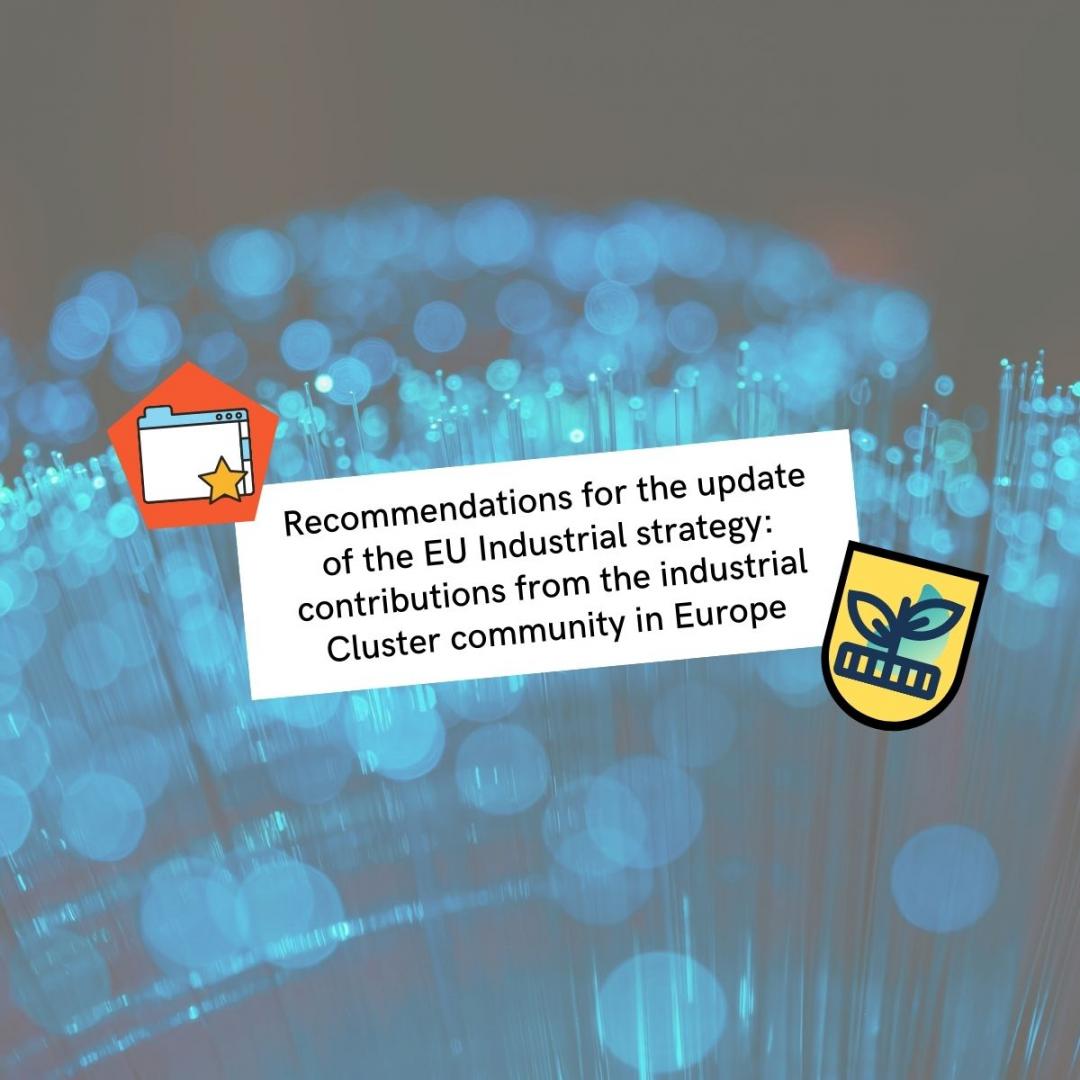Recommendations for the update of the EU Industrial strategy: contributions from the industrial Cluster community in Europe

This week's Tech update is European Clusters Alliance's brilliant position paper on the Updated EU Industrial Policy: an all-encompassing analysis on the EU ecosystem, highlighting the relevance of Clusters and their role. For a quick preview of this interesting content, read the summary of the lessons learned from the pandemics:
LESSON 1
- Companies participating in clusters were more likely to diversify their solutions and adapt to the new realities.
- A network that facilitates strong connections between their members and w/ other networks is far more flexible and resilient than those having few of them, and far more than individual enterprises acting on their own.
- Industrial clusters are probably the most effective stakeholders to improve the resilience of our ecosystems. They are physically close and present in SMEs' daily activities. Also, they are rich in cross-sectoral members and linkages.
- We need to make more use of the collective intelligence of EU clusters to make value/supply chains more resilient, creating synergies and cooperation w/ SMEs and employer organizations to anticipate risks and prepare for new opportunities and challenges.
LESSON 2
- The crisis showed us that we need to relocate industry to Europe. We need to deepen business relations among European companies and partners and to develop an integrated ecosystem for the whole range of materials, metals, and minerals required for the industrial transition.
- We should increase our efforts in strengthening the circular economy and strongly commit to an accelerated and integrating process of Industry 4.0 technologies.
- We should continue to work in cross-sectoral, interdisciplinary, and transnational cluster collaboration to develop new products/services which guarantee EU companies critical inputs and technology, and develop European world-class clusters connecting regional clusters, networks, and ecosystems.
LESSON 3
- The coronavirus crisis has accelerated many trends, especially the digital transition. We need to support companies in quickly upgrading their business models to following this acceleration.
- Furthermore, we not only see an immediate impact on manufacturing and services but also on the organization of the companies themselves. Therefore, we need not only a technical upskilling, but a “cultural upskilling”, a change in the mindset of companies and skilling in the possibilities of internal organisation.
LESSON 4
- Financing the twin transition and investing in new solutions can only be done when all relevant stakeholders are on the same page. Public funds are essential to support the economic growth of the companies.
- Possibilities are to extend cascade funding schemes through clusters to make the funds reach the SMEs, and ensure an efficient application of the EU Taxonomy for sustainable activities, adapting it to smaller entities.
- There is a need to implement mechanisms to attract private capital to support this growth of EU companies. Clusters stimulate the interaction of public and private synergies in terms of sustainable co-investment by creating different channels to redirect capital flows towards long-term vision projects which are circular economy oriented.
LESSON 5
- The adaptions to the new realities and the twin transition require companies to make their personnel fit for the future. We cannot react to the changes; we must shape them.
- We need to commit to a broad-based and inclusive training, share knowledge throughout Europe, and optimize know-how resources.
LESSON 6
- Our industrial policies need to take societal aspects into account – ethical production, corporate social responsibility, and shared value, to be further integrated into the core DNA of our industry.
- Additional specific actions must be offered to SMEs and larger enterprises targeting at creating and securing jobs in territorial areas where the economic crisis due to the COVID-19 pandemic had a significant social impact.
LESSON 7
- Reducing the bureaucracy for SMEs and making public administrations more digital helps in improving the collaboration in the industrial ecosystems, to which the public bodies belong.
- There is the need to reinforce public-private collaborations: we have seen during the pandemic that once the needs of the public sector are clearly expressed and defined, then the industry is able to mobilize resources and respond to the needs. What if this process could be made “institutional” (mainly leveraging the role of clusters) and not exceptional?
Visit https://lnkd.in/edQphzu to read the full paper.
"Clusters can act as brokers, drivers of change, accelerators, and enablers of the twin transition through mobilizing and facilitating cooperation among stakeholders in industrial ecosystems".
#Clusterworks
Cluster organisation
Category
News